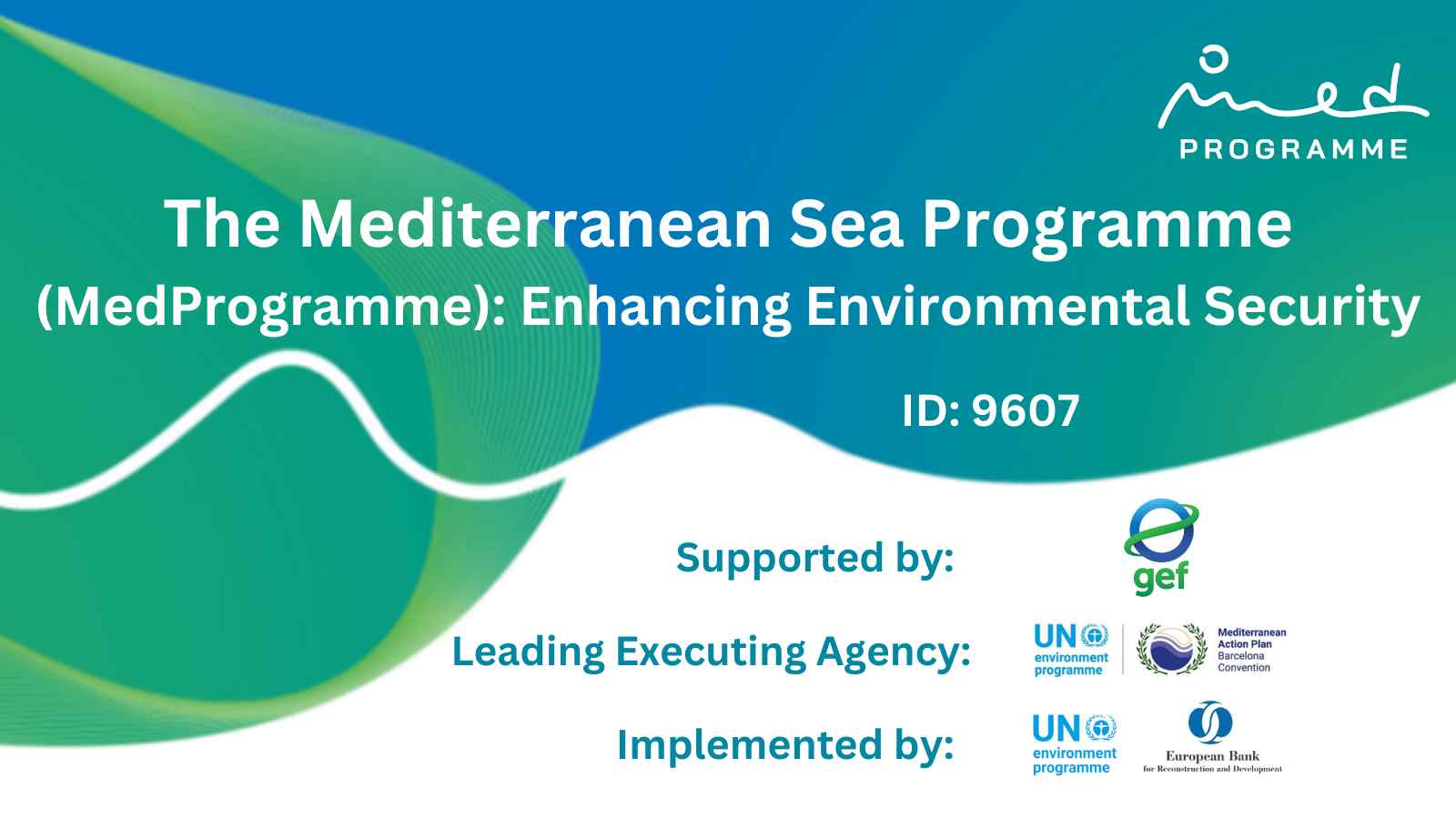The GEF UNEP/MAP MedProgramme Child Project 2.2 contributes to the reduction of major transboundary environmental stresses in the Mediterranean region by analysing the trade-offs between WEFE Nexus sectors in beneficiary countries and scaling up successful results. Based on in-depth Nexus Assessments and scientific evidence, the Project aims at providing policy recommendations for the holistic governance and integrated management of natural resources in coastal areas and beyond, adopting a Source-to-Sea analysis.
The coastal zone is where pressures from competing uses and users for water-energy-food security are most apparent, and where an integrated approach, preserving ecosystem integrity, is not only possible but essential for sustainable development. The MedProgramme Child Project 2.2 demonstrates the benefits of the WEFE Nexus approach to solving land-based problems in the source-sea continuum, and catalyses action for its adoption and implementation in the Mediterranean region. The results and knowledge generated by the project's activities (Nexus Assessments and Solutions) will be presented to the Contracting Parties to the Barcelona Convention, and will contribute to the water agenda of the Union for the Mediterranean (UfM) as well as to the Nexus agenda of the European Commission and the Global Environment Facility (GEF).
At regional, national and sub-national levels, the project will strengthen the institutional capacities and technical knowledge of participating Mediterranean countries, particularly in the three coastal hotspots of Albania, Lebanon and Morocco (Tangier-Tetouan-Al Hoceïma region). GWP-Med and the project partners will bring together policy-makers, experts, knowledge brokers, funding partners and civil society to bridge knowledge gaps and advance cross-sectoral WEFE coordination - laying the foundations for a Mediterranean Nexus strategy.
Project governance and structure
Child Project 2.2 “Mediterranean Coastal Zones: managing the WEFE Nexus” contributes to GEF/UNEP MedProgramme outcomes by analyzing trade-offs among the WEFE Nexus sectors in beneficiary countries and providing policy recommendations for the integrated management and governance of natural resources in coastal areas and beyond, taking a Source-to-Sea approach. The Project operates in close collaboration with Country Representatives and Project technical Partners (PAP/RAC, Plan Bleu/RAC and UNESCO-IHP).
Component 2 of the MedProgramme (“Enhancing Sustainability and Climate Resilience in the Coastal Zone”) is entirely funded by the GEF International Waters (IW) Focal Area, and comprises three Child Projects mutually assisting and reinforcing their objectives:
- Child Project 2.1 “Mediterranean Coastal Zones: Water Security, Climate Resilience and Habitat Protection”, executed by UNEP/MAP, UNESCO IHP, PAP/RAC, Plan Bleu/RAC, GWP-Med.
- Child Project 2.2 “Mediterranean Coastal Zones: Managing the Water-Energy-Food and Ecosystems Nexus”, executed by UNEP/MAP and GWP-Med.
- Child Project SCCF “Enhancing regional climate change adaptation in the Mediterranean Marine and Coastal Areas”, executed by UNEP/MAP, PAP/RAC, Plan Bleu/RAC, GWP-Med.
The three projects acting in synergy foster the mainstreaming of climate change adaptation approaches in ICZM planning as well as the conjunctive management of surface and groundwater, as means to address coastal related pressures to the Mediterranean Large Marine Ecosystems using Nexus and source-to-sea analysis for integrated programmes of measures.
Child Project 2.2 is articulated across four Components delivering a set of interconnected outputs:
Component 1: Institutional Strengthening
Component 2: Addressing-the-nexus
Component 3: Testing and Upscaling Nexus solutions
Component 4: Consultation and Outreach
These include:
- Regional activities targeting the MedProgramme beneficiary countries (Albania, Algeria, Bosnia and Herzegovina, Egypt, Lebanon, Libya, Montenegro, Morocco, Tunisia) designed to enhance capacities and understanding of national stakeholders on the Nexus approach and its benefits across sectors.
- Focused activities in three priority areas: Albania and Lebanon at National level and Morocco in the Tanger-Tétouan-Al Hoceima region, aiming to inform policy-making and management practices of natural resources by introducing practical assessments and consultation approaches related to the Nexus, allowing the Water and Environmental policy and management approaches at the coastal and marine area to also be informed by and/or inform the Energy and Agricultural decision making.
